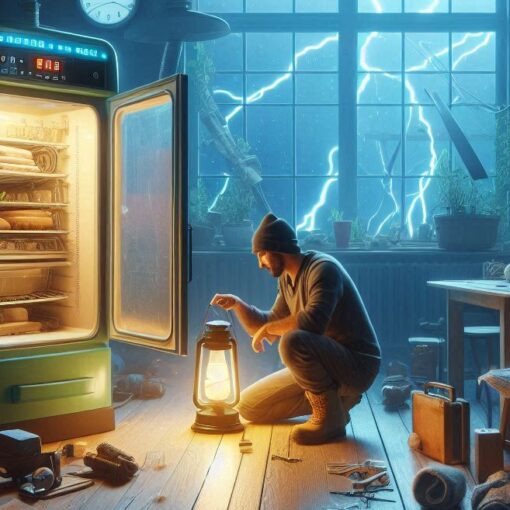Top Takeaways and Key Concepts
- Stay calm first to think clearly and assess your situation before acting.
- Secure water quickly and purify it by boiling or filtering if necessary.
- Ration food wisely using non-perishables and rotate supplies regularly.
- Create safe shelter and communication plans to stay protected and connected.
- Maintain mental resilience with positive thinking, routines, and group support.
Summary of This Article
This article explains how to survive the critical first 72 hours after a disaster by staying calm, thinking clearly, and focusing on essential needs. It highlights water as the top priority, followed by food, shelter, and safety. Readers are encouraged to gather supplies, purify water, use non-perishable foods, and prepare for emergencies with tools like radios and flashlights. The article also emphasizes the importance of communication plans and secure shelter to stay safe. Finally, it reminds readers that mental strength and morale are just as important as physical survival—staying positive, working together, and taking one step at a time can make all the difference.
Short Video Version of this Article
It seems like you’re in an action movie when something horrible happens. But there aren’t any amazing stunts or a defined plot. You know how you see people on TV trying to survive in the wilderness with just a pocketknife and a smile? It’s really strong!
It’s your turn now! The first 72 hours after anything goes wrong might be very critical. They are very important. It might seem crazy and dangerous, but we can get through this together.
Please Note: This post may contain affiliate links. If you click one of them, we may receive a commission at no extra cost to you. As an Amazon Associate, I earn from qualifying purchases.
Right away, think about what you need. First and foremost, water. It is very important to stay hydrated! If you can’t get clean water, see if you can find ways to catch rainwater or use other safe sources nearby.
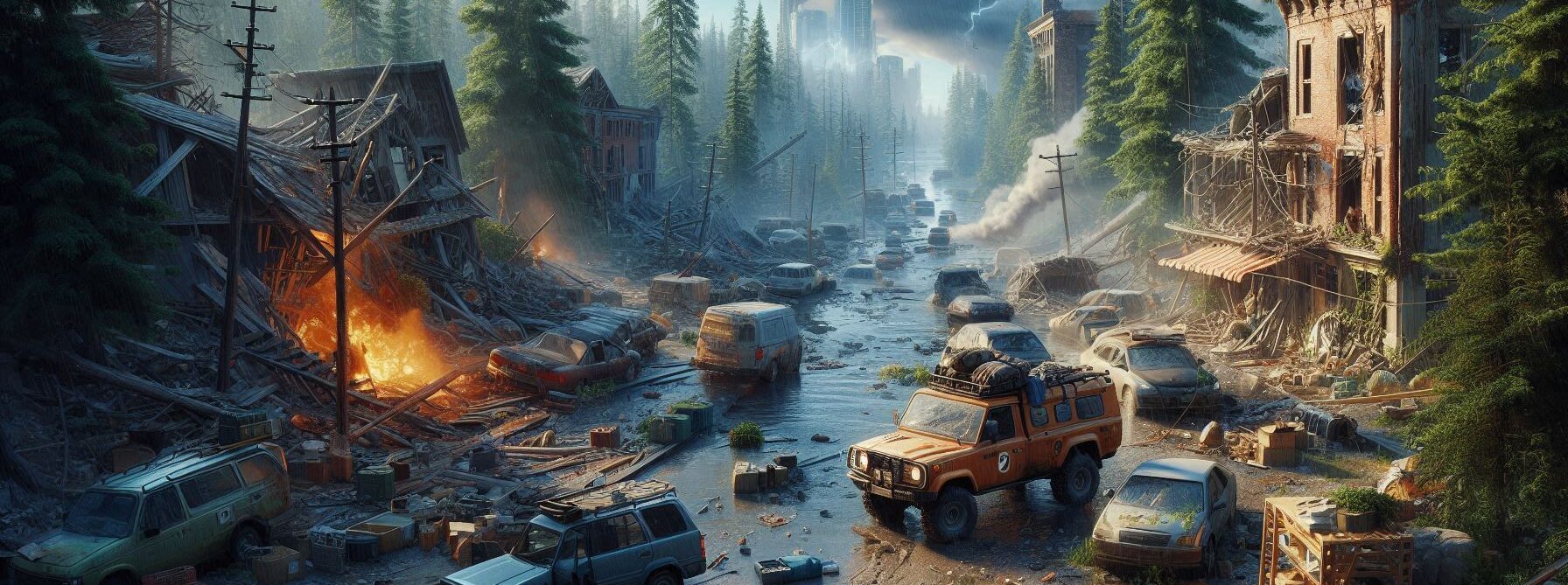
Next, let’s talk about food. Getting something to eat can make you feel better. If you’re courageous enough to tell them apart, look for snacks you packed or maybe some berries.
Don’t forget about a place to stay! It’s really vital to choose a safe spot to rest. Whether it’s under a tree or in a strong place, just make sure it keeps you secure and dry.
Are you lost? That’s fine! Take deep breathes. Take one baby step at a time. You can do this! It’s important to stay cool and use what you have.
It’s like being on a roller coaster of survival: sometimes it’s fun, sometimes it’s scary, and there’s always an adventure waiting for you to take charge!
Understanding the Chaos: What Happens Right After?

So picture this: one minute you’re enjoying your morning coffee, and the next minute—BAM! The power goes out, your Wi-Fi crashes (the horror!), and suddenly you find yourself questioning everything. “Is this what they mean by ‘survival of the fittest’?” I mean, my biggest concern is whether my plants will survive without my daily pep talks.
During those first moments of chaos, staying calm is super important. Panic is like that pesky mosquito buzzing around your head. So annoying! It just distracts you from what really matters. Take a deep breath. Or a few deep breaths. Feel better? Good! Now, check out your situation. Do you have food? Water? Maybe a way to call someone who isn’t glued to their TV?
Once you know you’re okay and not buried under piles of laundry, it’s time to gather supplies. This is where having an emergency kit can save the day! If you don’t have one yet, well… it might be time for some serious shopping. Think about what should go in there: snacks, water bottles, maybe a flashlight or some band-aids.
While you’re at it, grab things that make you feel safe too. A favorite blanket or a photo can help calm those nerves. It’s all about making sure you’re ready for anything!
Just remember, no one wants to be caught off guard when life throws curveballs. You got this! Focus on what you can do right now and take small steps forward. You’ll be surprised how much stronger you are than you think!
Water: Your Best Friend in Crisis
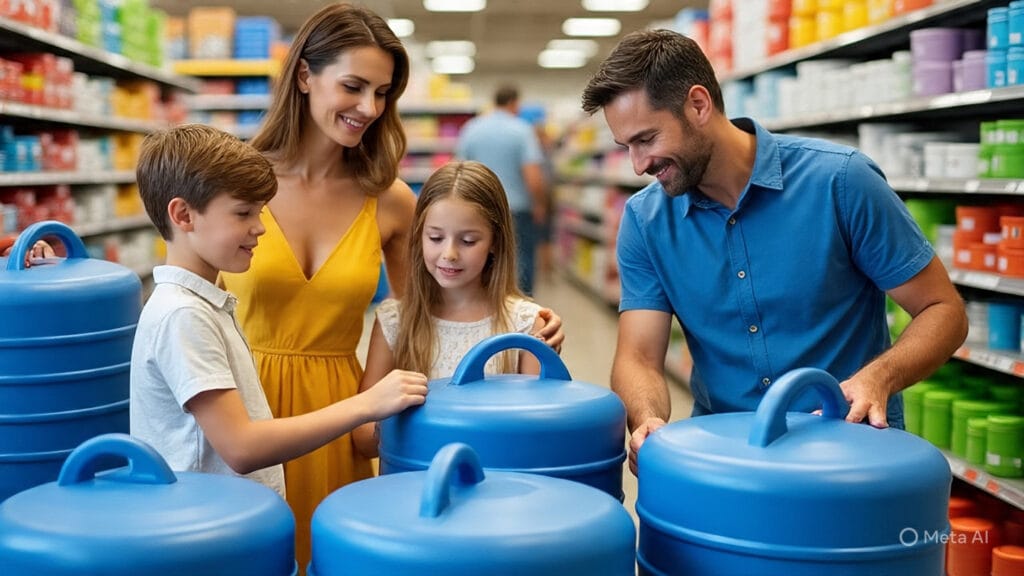
If there’s one thing I’ve learned from camping trips gone wrong (and trust me, there have been many), it’s that water is crucial. You can survive days without food—though I wouldn’t recommend it if you want to keep your sanity—but without water? Forget about it!
In those first 72 hours after something bad happens, you want to have enough water. Aim for at least one gallon of water per person each day. If you can, fill up bathtubs or big containers before trouble hits. But if it’s too late for that, channel your inner MacGyver! Get creative with whatever containers you can find. Just a tip—avoid anything that used to hold pickles unless you’re feeling fancy.
If clean drinking water runs low, don’t worry too much. You can boil or filter any water that looks questionable. Remember when we were kids and boiled hot dogs over campfires? Who knew those skills would come in handy again someday?
Boiling water is super easy. Just heat it until it bubbles away like a little cauldron! Let it cool down before you drink it, though.
Filtering is another option if you’ve got a cloth or even coffee filters lying around. Just pour the water through and hope for the best! It’s like making a science experiment in your kitchen.
Stay calm during all this craziness. You’re doing great! Water is so important, and thinking outside the box will help keep everyone safe and hydrated. You’ve got this!
Food: Fueling Your Survival Engine
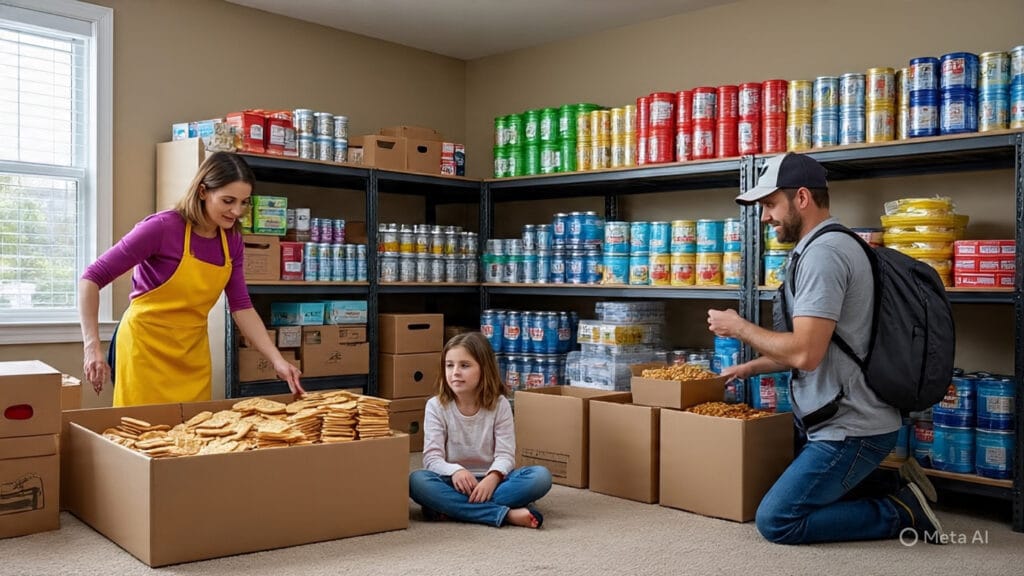
Next on our list is food—the glorious stuff that keeps us going even when Netflix isn’t available! During emergencies, non-perishable items become your best friends.
Think canned goods (because who doesn’t love beans?), dried fruits (which make excellent snacks while waiting for help), and maybe even some energy bars—perfect for quick munching while contemplating life choices.
Oh, and I’ve gotta mention something super important. You really need to rotate through your stockpile of food. Seriously. Finding expired cans of tuna while you’re digging around can lead to some dramatic moments! Picture it like a reality show—lots of gasps and maybe even some tears.
Check your supplies every few months. It’s like playing hide-and-seek with your food. Make sure you eat the older stuff first so nothing goes bad on you.
And speaking of food, don’t forget about pets! Fido needs his kibble too. Imagine a hangry dog barking at you when things are already stressful. Yikes! That’s not what anyone wants during a tough time.
Make sure you’ve got enough food for your furry friend in your emergency kit. If you have to leave quickly, grab their food along with yours. They deserve snacks too!
Keeping everyone fed helps keep the peace, right? So, check those supplies and make sure everyone’s taken care of—even the four-legged family members! You’re doing great!
Communication: Staying Connected
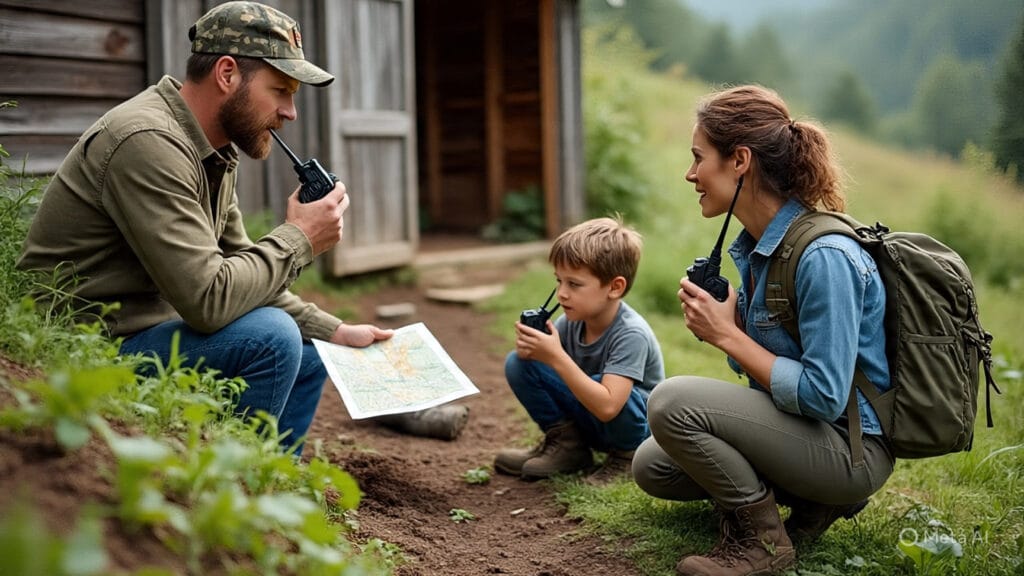
In today’s world filled with smartphones glued to our hands like sticky candy wrappers on summer days, losing communication feels like losing part of ourselves! So, what do we do when cell towers go down faster than my attempts at cooking dinner?
First things first: Have alternative methods ready! Consider investing in two-way radios or walkie-talkies because shouting across the street might not cut it during more intense situations. Also include written communication plans outlining where family members should meet if separated; think less “Hunger Games” and more “family reunion.”
You know, when something bad happens, things can get a little crazy. The first few hours after a disaster might mean your phone isn’t working right. Networks can get super busy or even break down. It’s like trying to call someone during the Super Bowl—everyone’s on their phones!
So, relying just on technology? Not the best idea. You gotta channel your inner old-school communicator. Face-to-face chats are where it’s at! Talk to your neighbors or friends nearby. A smile and a wave go a long way.
It feels good to connect with people in real life anyway. Plus, you never know who might have some helpful info or resources. Maybe someone has extra water or food to share.
Take a moment to look around and see who needs help too. It’s all about sticking together during tough times, right? Just remember: face-to-face is the way to go when tech lets us down! Keep that spirit up; you’ve got this!
Safety First: Creating a Secure Space
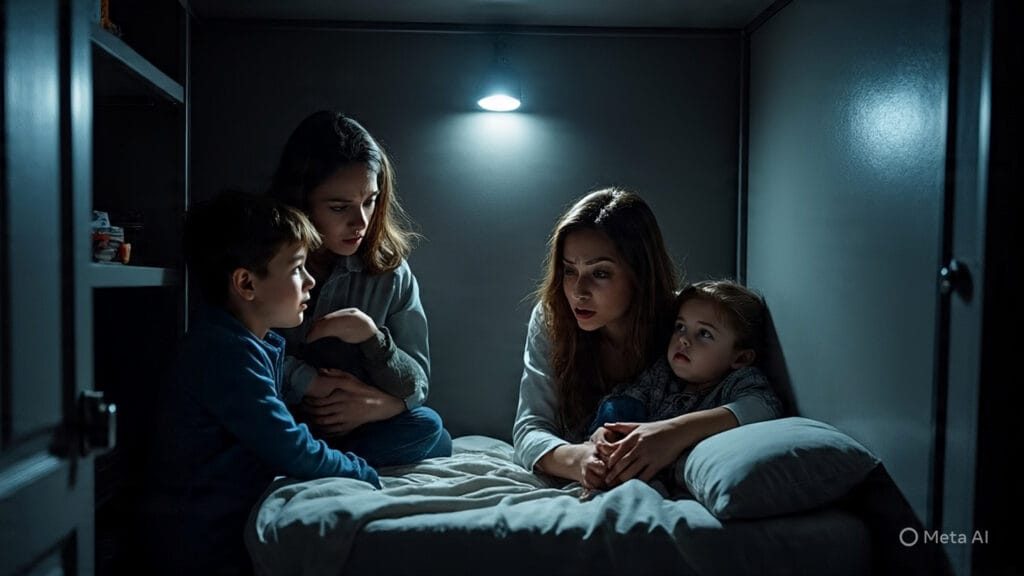
Now, we need to talk about safety because nothing says “I’m prepared” quite like knowing how to secure your space during disasters. Depending on what kind of crisis unfolds—a storm rolling through or something more sinister—you’ll want a safe place set aside as soon as possible.
Identify rooms away from windows where everyone can gather together safely until conditions improve outside—that means no playing hide-and-seek near unstable structures!
Make sure flashlights are readily accessible along with extra batteries since darkness tends not only makes things scarier but also turns everyday objects into creepy shadows lurking around corners.
Speaking of light sources… candles might seem romantic until they become fire hazards amidst all this chaos! Use caution here; instead opt for LED lights powered by solar chargers whenever possible—it beats trying to figure out why matches seem impossible even though they were right there five minutes ago!
Mental Resilience: Keeping Spirits High
You know, it’s really vital to keep strong when things get bad. It’s not only what you eat or how much water you drink. Your brain needs some love, too! When things are a little shaky (like when you wonder why you bought twelve jars of pickles), it helps to stay positive.
Think of things that will be fun. How about playing board games? Or share humorous stories that make you think of warm nights by the campfire, even if there isn’t a fire right now. It’s wonderful to laugh together, even if it’s only over ridiculous things like when someone mistakenly burned marshmallows too long and they turned into black blobs.
Get everyone around you to talk about how they feel. Your pets too! They may not talk back, but touching them can help you feel better. Talking about your issues might sometimes make them seem smaller.
Remembering that you’re not the only one going through this might be really helpful. Everyone has their own problems, but talking about them can help. Even if we’re locked indoors instead of battling genuine flooding outside, we’re all in this together. Keep talking, keep laughing, and don’t forget that better days are coming!
Frequently Asked Questions
1. What should I do first during the first 72 hours of a disaster?
The most important first step is to stay calm and assess your situation. Check for injuries, locate basic supplies like water and food, and avoid rushing into dangerous decisions.
2. How much water do I need to survive in an emergency?
You should aim for at least one gallon of water per person per day. If clean water isn’t available, purify what you find by boiling it or filtering it through cloth or coffee filters.
3. What kind of food should I store for emergencies?
Non-perishable foods like canned goods, dried fruits, nuts, and energy bars are ideal. Rotate your food stock regularly and don’t forget to include pet food if you have animals.
4. How can I communicate with others if cell service goes down?
Use backup methods like walkie-talkies, two-way radios, or written meeting plans. Face-to-face communication with neighbors or nearby people is also essential when technology fails.
5. How do I create a safe shelter during a crisis?
Choose a secure location away from windows and unstable structures. Keep flashlights, blankets, and emergency supplies nearby, and avoid open flames by using LED lights instead of candles.
6. Why is mental resilience important in survival situations?
Staying positive helps reduce panic, keeps morale high, and improves decision-making. Activities like talking with others, playing games, or sharing stories can help everyone stay calm and focused.
7. What are the most important items to include in an emergency kit?
A good kit includes water, non-perishable food, a flashlight, batteries, first aid supplies, tools, and a communication device like a radio. Comfort items like blankets or photos can also boost morale.
Suggested Resources:
Disaster Preparedness Guide
https://www.ready.gov/prepare
Emergency Essentials Checklist
https://www.redcross.org/get-help/how-to-prepare-for-emergencies.html
Survival Skills Basics
https://www.survivalskills.com/basics

Kevin Collier is a seasoned outdoor enthusiast and writer for Trekbug.com, specializing in outdoor adventures, survival strategies, and prepping insights. With a deep love for nature and a commitment to self-sufficiency, Kevin empowers readers to embrace the wilderness confidently. He shares valuable tips, practical techniques, and inspiring stories, helping both novice and experienced adventurers develop essential skills for surviving and thriving in the great outdoors.



